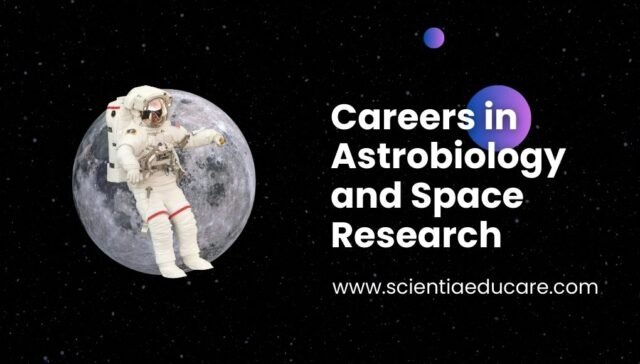Astrobiology and Space Research
Astrobiology and space research represent the frontier of human curiosity, merging disciplines to explore the origins, evolution, and potential existence of life beyond Earth. Pursuing a career in these fields offers the opportunity to contribute to groundbreaking discoveries that expand our understanding of the universe.
Astrobiology and Space Research,
Careers in astrobiology and space research,
Astrobiology job opportunities in India,
How to become an astrobiologist,
Top universities for space research degrees,
Interdisciplinary studies in astrobiology careers
Table of Contents
- Understanding Astrobiology and Space Research
- Educational Pathways
- Key Skills and Competencies
- Career Opportunities
- Top Universities Offering Astrobiology and Space Research Programs
- Further Reading
Understanding Astrobiology and Space Research
Astrobiology is an interdisciplinary field that studies the origin, evolution, distribution, and future of life in the universe. It combines aspects of biology, chemistry, geology, and astronomy to explore fundamental questions about life beyond Earth. Space research encompasses a broad range of scientific studies conducted in outer space, including planetary science, astrophysics, and space exploration technologies.
Educational Pathways
Embarking on a career in astrobiology and space research typically requires a strong educational foundation in the sciences. Aspiring professionals often pursue degrees in disciplines such as biology, chemistry, physics, astronomy, or geology. Advanced positions may necessitate specialized graduate degrees or doctoral research in a related field.
Several universities offer dedicated programs in astrobiology and space sciences. For instance, Arizona State University provides a Bachelor of Science in Earth and Space Exploration with a concentration in Astrobiology and Biogeosciences.
Similarly, Florida Institute of Technology offers a Bachelor of Science in Astrobiology.
Key Skills and Competencies
Success in astrobiology and space research demands a diverse skill set:
- Analytical Thinking: Ability to interpret complex data and develop hypotheses.
- Technical Proficiency: Familiarity with laboratory equipment, computer modeling, and simulation tools.
- Interdisciplinary Collaboration: Willingness to work across various scientific domains.
- Communication Skills: Effectiveness in conveying research findings to both scientific and general audiences.
- Problem-Solving: Creativity in addressing research challenges and experimental design.
Career Opportunities
Astrobiology and space research offer a wide array of career paths across different sectors:
Academic and Research Institutions
- Research Scientist: Conduct studies on extremophiles, planetary atmospheres, or cosmic phenomena.
- University Professor: Teach courses in astrobiology, astronomy, or related fields while mentoring students.
Government Agencies
- NASA Astrobiologist: Participate in missions exploring planetary bodies and analyze extraterrestrial samples.
- Space Policy Analyst: Develop policies guiding space exploration and international collaboration.
Private Sector
- Aerospace Engineer: Design and test spacecraft, instruments, and life-support systems.
- Biotechnology Specialist: Apply knowledge of extremophiles to develop novel biotechnologies.
Science Communication and Outreach
- Science Journalist: Write articles or produce content explaining complex scientific concepts to the public.
- Educational Program Developer: Create curricula and materials to educate students about space sciences.
Job prospects in these fields are diverse and can be found worldwide. For instance, positions such as Microbiologist, Faculty, and other roles related to astrobiology are available.
Top Universities Offering Astrobiology and Space Research Programs
Here is a list of renowned institutions that provide specialized courses in astrobiology and space research:
- University of Arizona: Offers programs in astrobiology and planetary sciences.
- California Institute of Technology (Caltech): Known for its research in planetary science and collaborations with NASA’s Jet Propulsion Laboratory.
- University of California, Berkeley: Provides courses in astronomy and integrative biology with opportunities for astrobiology research.
- Massachusetts Institute of Technology (MIT): Features programs in planetary science and astrobiology.
- University of Edinburgh: Offers an MSc in Astrobiology and Planetary Sciences.
For a comprehensive list of universities offering astrobiology programs, you can refer to the rankings provided by EduRank.
Further Reading
To delve deeper into astrobiology and space research, consider exploring the following resources:
- NASA Astrobiology Institute: Provides extensive information on current research, missions, and educational resources.
- European Space Agency (ESA): Offers insights into space missions and research initiatives within Europe.
- “Astrobiology: A Very Short Introduction” by David C. Catling: A concise book that covers the fundamental aspects of astrobiology.
- Coursera’s Astrobiology Courses: Online courses such as “Astrobiology: Exploring Other Worlds” by the University of Arizona.
Pursuing a career in astrobiology and space research is both challenging and rewarding, offering the chance to contribute to humanity’s understanding of life and the cosmos. With the right educational background, skill set, and passion, you can embark on a journey that pushes the boundaries of science and exploration.














